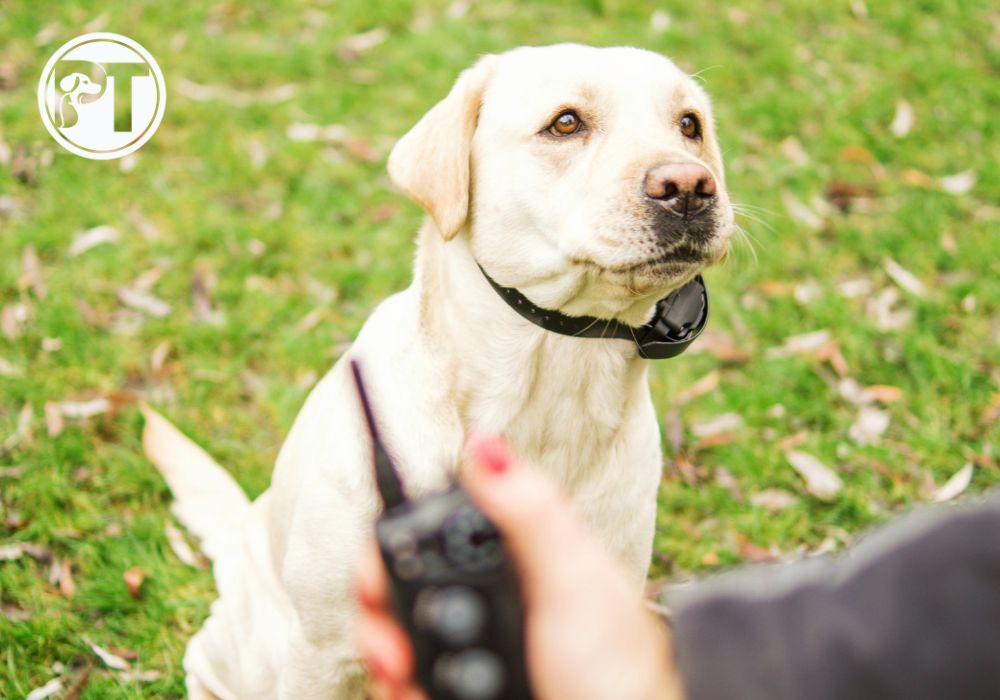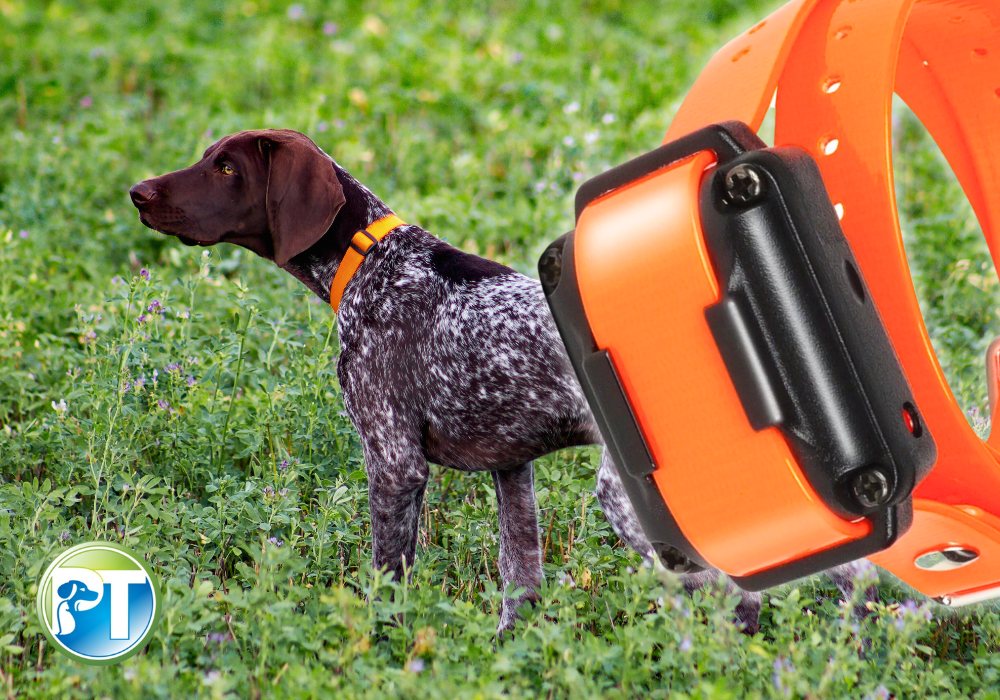How to: Basic E-Collar Troubleshooting Steps

E-collars are nifty tools in dog training. They help you communicate better with your dog, especially when they’re off the leash.
But what would you do if your e-collar breaks down?
Sometimes, tools may not work as expected, even if you recently bought them from the store. This is possible in a remote dog training collar. If you run into this issue, don’t conclude at once that your e collar is defective.
When your new shock collar is not working, the problem may be something other than the equipment itself. You may have missed something while setting up your training collar. More often than not, it only needs a simple trick, which you can easily pull off.
How to Troubleshoot an E-Collar?
There are a few possible reasons why your e-collar is not working and your dog does not react to the stimulation. We’ve prepared a checklist for you to run through. Go over these basic e-collar troubleshooting steps, and get your device up and running again.
Step 1: Check the battery charge.

The first step in troubleshooting a dog training collar with remote is to check the battery charge. Ensure the remote transmitter and receiver collar have full-battery status. If the indicator light is flashing red, your e collar needs to be charged. A low battery level can cause inconsistent connection between the remote and the collar.
Dog electric collars are partially charged when they leave the factory. However, storage and delivery may drain the battery. It is recommended to charge the unit before using it. Most dog training collars only need a maximum of 2 hours to achieve a full charge, for instance, Dogtra e-collars. But some can take as much as 5 hours for the first charge, like the PetSafe 300 Yard Lite Remote Trainer. Make sure to read the user guide that comes with the package for specific charging instructions.
Step 2: Make sure your transmitter and collar are on.

Sometimes, your dog not responding to the remote dog training collar is not as complicated as it seems. Another zone to inspect is if your remote transmitter and collar receiver are on. Transmitters and e collars (Dogtra 1900S, Pathfinder 2) typically have power buttons. Generally, the indicator light from both devices will blink for a few seconds, indicating they’re ready to use.
However, you should also know that not all units have power buttons. For instance, the ET-300 Mini Educator receiver collar comes with a magnetic red dot instead. To turn it on, you need to place the red dot against the red dot of the transmitter to activate and pair your e-collar. As this could be possible for different brands, refer to the e-collar manual when setting up.
Step 3: Ensure the transmitter and receiver collar are synced.

The handheld remote sends a signal to the receiver collar, while the dog collar, in turn, delivers the stimulation. Hence, the remote and e-collar must be in sync to function correctly. Depending on the ecollar brand and model, the pairing instructions for different shock collars may vary. Some dog training collars require you to join the magnetic red dots from both the remote and collar. Others are paired by simply turning on both devices. Some turn your smartphone into a remote, such as the PetSafe SMART DOG® Trainer remote training collar. Here, the pairing happens between your e-collar and phone in place of the standard remote transmitter. Thus, it is advised to always check your user manual for proper guidance.
Once you’ve gone over these steps and you think the equipment is working fine, check the dog collar fit.
Step 4: Check the e-collar fit.

Improper e-collar fit is another likely reason behind inconsistent stimulation responses from your dog. A shock collar for dogs comes with prongs or contact points from which stimulation travels from the collar to the dog. The purpose of the stimulus is to get your dog’s attention and communicate with them better. Thus, the prongs should touch your dog’s skin for them to feel the stimulation.
While at it, ensure your dog feels comfortable wearing the collar. A too-tight fit can cause redness or irritation. On the other hand, a too-loose collar cannot administer correction reliably.
How to properly fit the e-collar?
- Place the receiver collar on your dog’s neck.
- Make sure the contact points are firmly pressed against the skin.
- You should be able to fit two fingers between the e-collar strap and your dog’s skin.

If your dog has a long or thick coat, you may need to trim the fur a bit. Alternatively, you can use longer prongs for better contact.
If the e-collar issue still needs to be resolved after this step, inspect other factors like the intensity level.
Step 5: Adjust the stimulation level.

Another area to check when troubleshooting an e-collar is to test the stimulation level. Each dog has a unique personality. One dog may be sensitive to low-level sensation, while your other pooch may need a slightly higher intensity.
The success of e-collar training rests on finding the perfect level for your dog. Find out your dog’s recognition level. The recognition level refers to the level at which your dog exhibits a slight behavior change. The behavior could be anything that would indicate your dog is feeling the stimulation.
Signs to watch out for in finding your dog’s recognition level:
- Scratching the collar
- Head tilting
- Ear flicking
- Looking around
- Puzzled face
Adjust the dial one level at a time to look for any of the above signs. Not getting any reaction from your dog means the level is too low. However, your dog shouldn’t yelp or panic after feeling the stimulation. If this happens, the intensity level is too high, and you need to turn it down.
Another thing, your dog’s recognition level can vary depending on how excited or distracted they are. Like humans, dog sensitivity changes during an adrenaline rush. It might be that your dog’s unresponsiveness to the stimulation is due to the distractions at that time. In these cases, you must turn up the level to get their attention. You can never go wrong with a dog shock collar having multiple correction levels. Some e collars even have a boost option (Dogtra CUE) that you can use during highly distracting situations.
Step 6: Check the range of the e-collar.

If there are still inconsistencies in the stimulation after fitting the collar, there might be a range problem. Make sure the remote antenna is not damaged. If it’s not the issue, it may be because you’re holding the remote the wrong way. Don’t hold the part where the antenna is located. Also, keep the antenna away from your body to avoid any interference. E-collar range may also vary due to terrain (canopy cover and dense bushes) and electrical conductors (metal structures).
If you’ve completed the six troubleshooting steps, you should be able to fix the issue. However, if the underlying problem is still unknown, review your user manual or contact customer support for a quick resolution.
Top Shock Collar Troubleshooting Concerns
-
Why is my e-collar not working?
Make sure your transmitter and collar are adequately charged. It may also be due to the receiver and transmitter not being turned on.
-
Why is my dog not responding to the shock collar?
Your dog not responding to the stimulation could be due to the prongs not touching your dog’s skin. Check the fit. If the fit is okay, check the prong length. If the contact points are too short, you may want longer ones. If you are already using the longest length, you may want to consider shaving your dog’s hair to get better contact.
-
How to test if a shock collar is working?
Test the shock collar to know if it’s working by touching the contact points. If you don’t feel any shock, it might be because you have high sensitivity. Try turning up the intensity level a little bit. Alternatively, you can use the test light tool, if any, that comes with your e-collar upon purchase. The test tool should light up when using stimulation.
-
Why does the transmitter range seem reduced?
Check your device’s battery condition. The e-collar range may be reduced if the battery level is low. Also, examine if the antenna is not damaged. If it’s not an antenna issue, it could be due to terrain. Heavy brush or tree cover can affect the range of the device.
-
Why is my e-collar not charging?
Check if the batteries are charged properly. If the charging port is dirty, try cleaning the dirt with a cotton swab and rubbing alcohol. If the charging pin is damaged, you will need to contact customer service for repair.
-
How to pair a shock collar with a remote?
Make sure your remote transmitter and receiver collar are turned on. Some units connect right away after activating the equipment. However, for other e-collars, you need to join the magnetic red dots from both the remote and collar. This is usually followed by a blinking indicator light, showing a successful pairing. But pairing instructions may vary across brands and models. Refer to your user manual to be guided accordingly.
-
How do you reconnect the e-collar?
To reconnect your e-collar to the transmitter, turn off the collar and repeat the pairing process.
You might also enjoy...



The hand unit is frozen on a shock level of 58. The reading is m58c.
Please let me know how to get it back to his normal level. Thanks